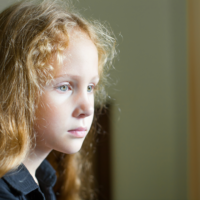depressive symptoms
-

Professor Bernadka Dubicka – Editor in Chief
Editor in Chief, Bernadka qualified in medicine and psychology at the University of London, completing child psychiatry training and her thesis in adolescent depression at the University of Manchester. She is the chief investigator of the National Institute of Health Research multi-site BAY trial of web-based Behavioural Activation in young people with depression (2022-26).
Read more -

Chronotype and Depression in Adolescence
We know that there is a bidirectional association between sleep duration/quality and depressive symptoms in youth. In adult populations depressive symptoms and circadian rhythms (sleep chronotype) have also been linked. In this paper, we established an association between chronotype and depressive symptoms in middle adolescence, independently of poor sleep and prior mental health difficulties.
Read more -

Annual Research Review: Neuroimmune network model of depression: a developmental perspective
Open Access paper from the JCPP – ‘We have three goals for the present paper. First, we extend neuroimmune network models of mental and physical health to generate a developmental framework of risk for the onset of depression during adolescence. Second, we examine how a neuroimmune network perspective can help explain the high rates of comorbidity between depression and other psychiatric disorders across development, and multimorbidity between depression and stress-related medical illnesses. Finally, we consider how identifying neuroimmune pathways to depression can facilitate a ‘next generation’ of behavioral and biological interventions that target neuroimmune signaling to treat, and ideally prevent, depression in youth and adolescents.’ Robin Nusslock (pic) et al.
Read more -

Depressive symptoms and loneliness among early adolescents: a psychometric network analysis approach
Open Access paper from the JCPP – ‘This study investigates: (a) the symptoms of depression that are connected to loneliness; (b) the role played by loneliness in the network of depression symptoms; and (c) whether the method used to measure loneliness (single-item direct or multi-item indirect) affects the relationship of loneliness with depressive symptoms’. Paweł Grygiel (pic) et al.
Read more -

Children with maltreatment exposure exhibit rumination-like spontaneous thought patterns: association with symptoms of depression, subcallosal cingulate cortex thickness, and cortisol levels
Open Access paper from the JCPP – ‘We studied the impact of maltreatment on self-generated thought (SGT) patterns and their association with depressive symptoms, subcallosal cingulate cortex (SCC) thickness, and cortisol levels in children.’ Ferdinand Hoffmann et al.
Read more -

Factors mitigating the harmful effects of intimate partner violence on adolescents’ depressive symptoms—A longitudinal birth cohort study
Open Access paper from JCPP Advances – ‘This study assessed the extent to which positive experiences were associated with depressive symptoms among children with and without experience of intimate partner violence.’ Dawid Gondek et al.
Read more -

Effects of maternal childhood trauma on child emotional health: maternal mental health and frontoamygdala pathways
Paper from the JCPP – “Experiences of early life adversity pose significant psychological and physical health risks to exposed individuals”. Jessica P. Uy et al.
Read more -

Are school-based interventions for depression and anxiety symptoms effective?
Gee et al. conducted a systematic search for randomised controlled trials of indicated psychological interventions delivered in an education setting. They focused on trials of interventions for adolescents aged 10-19 with elevated symptoms of depression and/or anxiety.
Read more -

Would delaying the school day prevent anxiety in adolescents?
A new study published in the Journal of Child Psychology and Psychiatry has investigated whether sleep duration and regularity might link stressful life events to anxiety and depression symptoms.
Read more -

Variable sleep schedules might put preschoolers at risk of academic difficulties
New data suggest that internalizing problems are associated with sleep variability and that cognitive ability is associated with sleep timing.
Read more